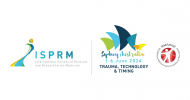Session outline
In rehabilitation research, it is often the case that practice precedes research due to practical and funding issues. Unlike drug research where animal studies and lab studies need to occur prior to drug development and research in man. Instroke rehabilitation neuroplasticity has informed much of our research and animal studies using pathology and imaging have assisted in the development of rehabilitation principles such as intensity of rehab and the timing of rehab.
Research in animal studies from local and international laboratories in medical surgical and rehabilitation techniques in stroke recovery and rehabilitation will be presented. Further discussion on the applications of observations to further research and clinical practice principles. This workshop discusses the most modern advances in basic sciences as they relate neurological rehabilitation and allows for interaction between basic scientists and clinicians.
Learning outcomes
- Attendees will gather an understanding of the role in the basic sciences in establishing mechanisms through which rehabilitation drives improvement in clinical outcomes.
- Attendees will gather an understanding of ways to utilise the basic sciences to explore research evidence for rehabilitation techniques such as the timing of rehabilitation and the environment in which it takes place.
- Attendees will be able to discuss ways to go from bench to bedside as well as ways to gather evidence from basic sciences for observations noted during rehabilitation episodes of care.
Target audience
We expect that this short workshop will be attractive to
- Administrators
- Basic Scientists
- Policy makers
- Rehabilitation Physicians
- Peadiatricians
- Allied health
- Medical practitioners
- Students
- Trainees
- Nursing staff



